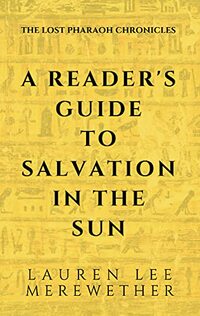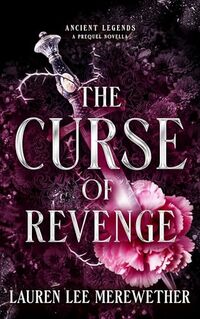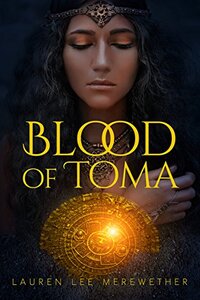Lauren Lee Merewether Interview Published on: 13, Jun 2022
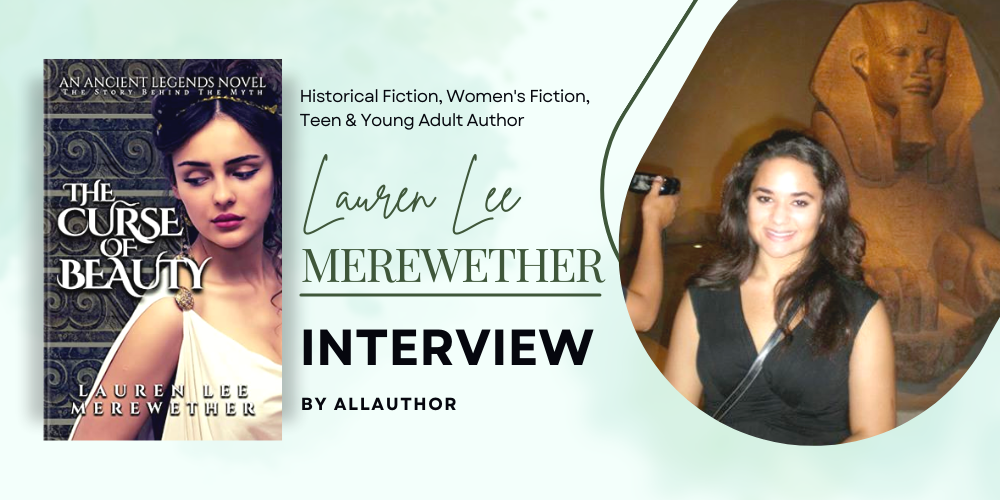 What were your hobbies as a kid? What are your hobbies now?
What were your hobbies as a kid? What are your hobbies now?
My hobbies as a kid ranged from painting to reading to drawing to ballet to swimming to doing puzzles of all kinds and much more. I don't have much time for hobbies now as I have two jobs and raising a family with other faith-based and family obligations, but I still love to read and do Sudoku puzzles. I also still love to paint and have a mural drawn out in our kids' playroom that one day, I will eventually get around to painting.
Did you ever dream of becoming a published writer? What were your dreams during childhood?Yes, I wanted to tell stories for as long as I can remember. I have such vivid daydreams and dreams that influence my stories. I wrote a 23 chapter book on two mermaids and a magic pearl in the 5th grade that I read aloud to my friend before audiobooks were a thing. My poor friend. Bari, if you are reading this, I'm sorry. If you wanted revenge, you should know the story was lost when my dad's old computer wouldn't boot past Y2K!
When did you start writing? What makes a good story for you?The first story I remember writing was about a lost whale looking for his momma whale in the third grade (yes, this was before Finding Nemo). It was written on learner paper and was maybe 20-25 words a page. I was so proud of that story. In my older years, I wrote a few books before I really started treating writing as a career in 2018. For me, a good story is one that stays with you and can reference when you are going through something in your life as to what the character did, right or wrong, helpful or not. Something to bring you back to our roots in humanity, love, and kindness. I aim to write stories around those larger themes of life.
What draws you to the genre of Historical Fiction? What are some of the challenges involved in writing in this genre?I love imagining life during dramatic times in history, and I LOVE ancient history. I really enjoy the research aspect of the genre too. I learn so much about a culture and continue to learn, but it is in a non-fiction setting. For fiction, I want it to be more about character arcs and growth with the detail woven in if it makes sense for the character story. I didn't really learn that's what I wanted until my fourth historical fiction book, Scarab in the Storm. So what I say to answer the second question, applies to everything I wrote after 2019.
The challenges of this genre are:
1) It takes a lot of skill to write a historical fiction book without boring your reader with too many factoids and getting bogged down in the minutia. I'd say a lot of people who read historical fiction enjoy reading that, but I don't. I skim paragraphs and pages of description because if I wanted that, I'd just read non-fiction. It fully takes me out of the story, so I personally leave the overly fluffy description out of my books and use all the research I did sparingly. Some readers do not like that and have given me reviews that say so. Others love it because they want the story and can do their own imagining of the setting: It's Egypt; it's hot. Don't waste word count on that.
2) Another one I find hard is balancing the speech and vocabulary of the times with a modern readers' comprehension. I write in Ancient Greece and Ancient Egypt. Particularly with Ancient Egypt, I get a lot of negative feedback because my stories aren't detailed enough (see Challenge 1) and I did not use all the Kemetic terms i.e. Kemet for Egypt, Ahset for Isis, N'gru for King, etc. even though I did use Waset for Thebes and Men-nefer for Memphis. I feel like everyone knows Isis, so I'm not going to grow my glossary any more than I already have for the sake of being that much more authentic. I don't want it to be a chore to read my books. When I read Scottish or Medieval books, I have to re-read the dialogue several times before I figure out what they are saying. I'd rather it just be plain: "I didn't want to." So, I also write in simple dialogue and simple descriptions to balance out the handful of authentic terms I use in my stories. For which, I get a lot of good feedback from readers. They love how easy it is to read my stories. I can't please both extremes, so I'm going to write how I would like to read a story, and those who like my style of storytelling will read what I write.
3) Writing a believable story in ancient times without offending too many of your readers is another challenge. Women were treated differently in ancient times. Ancient Egypt seems to have been ahead of its time because women were almost equal to men, which is very different from many of the surrounding cultures. Children were treated differently by different cultures. Ancient Egypt loved their children in the womb, and if they were stillborn or miscarried, they entombed them for the afterlife. I received a few hate-filled emails attacking me regarding this subject, and I had to respond with something like: my personal opinions on the subject were not included in the story, but the story did include the beliefs the Ancient Egyptians held as evidenced by discoveries involving human fetal mummies which is what I described and used as one of the plot points in the story (losing a preborn child). I came to realize that it doesn't matter what an author writes, someone somewhere will be offended. So, I just need to be true to the research and my characters.
4) Writing with historical accuracy is the last challenge I'll talk about. I try to be as accurate as possible, but there are a lot of theories out there that many think are factual, when it is still just a theory. I also am not a historian, archaeologist, Egyptologist, etc. so what I research is not going to compare to those lifelong professions. I spend about 6 months in research before I write a book AND research as I go through the book AND I have a fact checker in my editing phase AND it still isn't enough to please the readers who are absorbed in that culture. I have an author's note in the back where I tell where I deviated from majorly accepted theories and why I didn't include certain people, or what the theories are or what I completely made up, but it still doesn't please certain readers who I believe want more of a non-fiction/fiction docustory, which is not what I write. But it does please many readers who want a good story filled with relatable characters while also learning some about an ancient culture. Again, as an author, I can't please both extremes, so I will write what I want to read and those who like what I write will follow me.
I love sitting down to sip tea and watch Science Channel or Discovery channel shows like Unearthed or What on Earth? or the shows that dive into ancient myths and legends and their historical roots. I always get story ideas from them and have probably over hundred episodes saved on DVR to revisit when I get to that particular story. I've got over 30 book plots from this method of inspiration.
What was your reaction when "Blood of Toma" became an award-winning book?Blood of Toma was my first attempt at historical fiction, and I wrote a number of historical inaccuracies into the story to move it the way I wanted it. I didn't think it would win any awards, but was surprised and honored when it won three awards. Winning encouraged me to go after my dream of a career as an author. I don't know if I would have turned writing from a hobby into a career path if Blood of Toma hadn't won any awards. So thank you to Next Generation Indie Book Awards, Montaigne Medal (Eric Hoffer Awards), and Readers' Favorite for selecting Blood of Toma for an award!
What is "Nefertiti's Legacy: A Lost Pharaoh Chronicles Complement" about and how did you come up with the idea for this book?Nefertiti's Legacy is the end to a 15 book family saga. It's the story of what became of Nefertiti's daughter, Ankhesenamun, who fell from the historical record during the reign of Ay. The idea for the book came from the other books I had written as complements and prequels to the main quadrilogy. I wanted the bittersweet series to end in peace and happiness for all those who lived through the saga.
What is the one thing that has changed after being an author? Do you miss anything?My books are a part of our household income now, and I miss being able to write just to write. There is pressure now to write something that sells, and sells well, and in a genre that is not as popular as say, Cozy Mystery or Paranormal Romance. It dampens my creativity, and I fight Imposter Syndrome daily, which drives my anxiety through the roof when I only get 500 words down and I've got a deadline coming up.
What, to you, is an ideal setting or environment for a good writing session?Having a clear desk, natural sunlight, zero distractions, and a Brain.fm soft, high neural soundtrack for deep creative work playing in my headphones.
Who are some of your favourite authors and how have they influenced your writing?I really enjoy Mitch Albom, Khaled Hosseini, Margaret Mitchell, and Francine Rivers. I love the simplicity of Mitch Albom's writing style yet his ability to touch hearts. I love Hosseini's deep exploration of human emotion. I love Mitchell's way with the written word. She wrote my all-time favorite kissing scene. It was only a paragraph, but it was just so beautifully written, I felt Rhett Butler had leaned me back to give me a smooch. And Francine Rivers, I love the greater messages in her wonderful character-driven stories. I love each of these authors and their storytelling style, and my aim is to blend what I love most about reading their works into my own style of writing.
Would you change anything about your novels or the process of writing them, if you could?I wish I could write faster. I have so many different ideas in my head, I can't write them down fast enough and lose them.
What is the most adventurous thing you have ever done?I went on a two week trip to Italy with a friend, and we backpacked through Italy. It was so much fun, and I learned so much about the different sites.
How do you think women characters have evolved over time in historical fiction?I'm not sure if you mean comparing today's historical fiction novel to what we today consider historical fiction like Little Women but it was written during the same time as the story and thus not historical fiction, or to something like Geoffrey of Monmouth's Historia, a historical fiction tale of King Arthur, some 500-600 years after King Arcturos probably lived? I'm going to assume the latter? It is extremely difficult to write a full-blooded historical woman because as a modern woman, there are so many biases we have without even knowing it. Here is an example of a more obvious one. In some cultures, women were property, traded and sold as such. It is hard to write a woman who is ok with that because that is how life was. She didn't know any different way of life, but as modern women, we do. We have been taught what our culture considers right and wrong. And to us, treating a woman as property is wrong. But there was nothing wrong about it in that culture. If you read a historical fiction book where the message is that treatment of women is natural with nothing bad happening to the "abusive" husband or her finding love and escaping to true happiness or some underlying message speaking the modern value that women shouldn't be treated this way, the author will be attacked, even though the author was most likely accurately portraying a woman's life in that culture. I believe every historical fiction woman, written today about women in the past, has some sort of modern bias in it, otherwise, a majority of people would not read the book as there would be very little to relate to that character and it would offend the virtues we hold most dear. As such, in my opinion, historical women characters change according to modern virtues and values.
What is the title of the next book you are working on? What is it about?I am actually trying to write two books at a time, something I will not attempt again. The first one is Warrior King, book one of Egypt's Golden Age Chronicles. It is about the royal family who expelled the Hyksos from Lower Egypt and ushered in what modern historians call the 18th Dynasty or the Golden Age of Egypt. The second one is The Curse of Honor, which is the second book in my Ancient Legends series and will tell the story of how the Greek myth of Io arose from events that happened during the Mycenaean era of Ancient Greece.
How long have you been associated with AllAuthor? How has your experience been?I've been a member since October 2021 and it has been a great experience so far. Thank you for this interview, and I still need to try out the Cover of the Month contest!
Lauren Lee Merewether wanted to tell stories for as long as she can remember. As a kid, she enjoyed painting, reading, swimming, and doing puzzles. An ancient family saga fiction author, Lauren has published several multi-genre novels. Her stories are epic, dramatic, and romantic. She loves to watch shows that dive into ancient myths and legends and their historical roots.
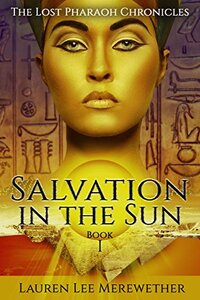 Salvation in the Sun (The Lost Pharaoh Chronicles Book 1)
Genre: Historical Fiction, Women's Fiction, Literary Fiction, Teen & Young Adult
Salvation in the Sun (The Lost Pharaoh Chronicles Book 1)
Genre: Historical Fiction, Women's Fiction, Literary Fiction, Teen & Young Adult
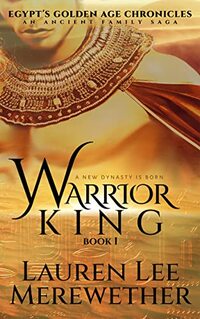 Warrior King (Egypt's Golden Age Chronicles Book 1)
Genre: Historical Romance, Historical Fiction, Women's Fiction, Literary Fiction
Warrior King (Egypt's Golden Age Chronicles Book 1)
Genre: Historical Romance, Historical Fiction, Women's Fiction, Literary Fiction
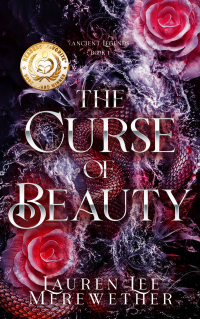 The Curse of Beauty: The Story Behind the Myth (Ancient Legends Book 1)
Genre: Historical Romance, Historical Fiction, Women's Fiction, Literary Fiction, Teen & Young Adult
The Curse of Beauty: The Story Behind the Myth (Ancient Legends Book 1)
Genre: Historical Romance, Historical Fiction, Women's Fiction, Literary Fiction, Teen & Young Adult
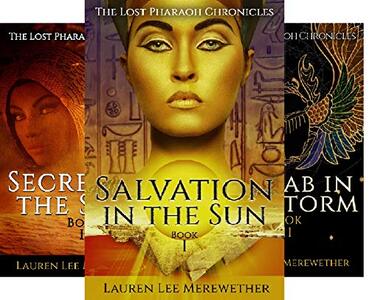 The Lost Pharaoh Chronicles (4 Book Series)
Genre: Historical Fiction, Women's Fiction, Literary Fiction, Teen & Young Adult
The Lost Pharaoh Chronicles (4 Book Series)
Genre: Historical Fiction, Women's Fiction, Literary Fiction, Teen & Young Adult
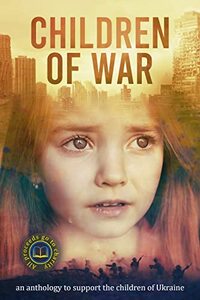 Children of War: an anthology to support the children of Ukraine
Genre: Supernatural Suspense, Historical Fiction, Women's Fiction, Literary Fiction, Fantasy, Teen & Young Adult
Children of War: an anthology to support the children of Ukraine
Genre: Supernatural Suspense, Historical Fiction, Women's Fiction, Literary Fiction, Fantasy, Teen & Young Adult
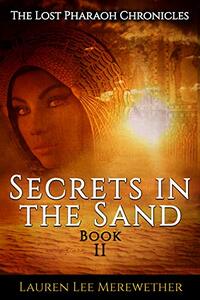 Secrets in the Sand (The Lost Pharaoh Chronicles Book 2)
Genre: Historical Romance, Historical Fiction, Women's Fiction, Literary Fiction, Teen & Young Adult
Secrets in the Sand (The Lost Pharaoh Chronicles Book 2)
Genre: Historical Romance, Historical Fiction, Women's Fiction, Literary Fiction, Teen & Young Adult
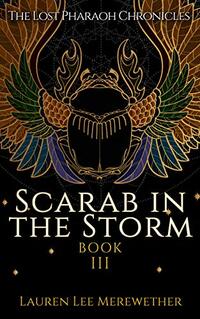 Scarab in the Storm (The Lost Pharaoh Chronicles Book 3)
Genre: Historical Romance, Historical Fiction, Women's Fiction, Literary Fiction, Teen & Young Adult
Scarab in the Storm (The Lost Pharaoh Chronicles Book 3)
Genre: Historical Romance, Historical Fiction, Women's Fiction, Literary Fiction, Teen & Young Adult
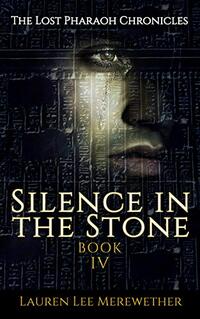 Silence in the Stone (The Lost Pharaoh Chronicles Book 4)
Genre: Historical Romance, Historical Fiction, Women's Fiction, Literary Fiction, Teen & Young Adult
Silence in the Stone (The Lost Pharaoh Chronicles Book 4)
Genre: Historical Romance, Historical Fiction, Women's Fiction, Literary Fiction, Teen & Young Adult
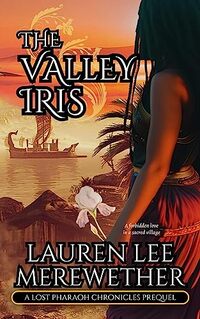 The Valley Iris: A Lost Pharaoh Chronicles Prequel (The Lost Pharaoh Chronicles Prequel Collection Book 1)
Genre: Historical Fiction, Women's Fiction, Literary Fiction, Teen & Young Adult
The Valley Iris: A Lost Pharaoh Chronicles Prequel (The Lost Pharaoh Chronicles Prequel Collection Book 1)
Genre: Historical Fiction, Women's Fiction, Literary Fiction, Teen & Young Adult
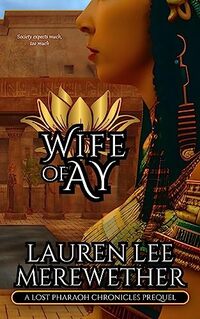 Wife of Ay: A Lost Pharaoh Chronicles Prequel (The Lost Pharaoh Chronicles Prequel Collection Book 2)
Genre: Historical Romance, Historical Fiction, Women's Fiction, Literary Fiction, Teen & Young Adult
Wife of Ay: A Lost Pharaoh Chronicles Prequel (The Lost Pharaoh Chronicles Prequel Collection Book 2)
Genre: Historical Romance, Historical Fiction, Women's Fiction, Literary Fiction, Teen & Young Adult
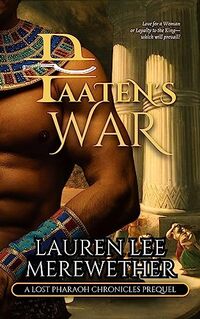 Paaten's War: A Lost Pharaoh Chronicles Prequel (The Lost Pharaoh Chronicles Prequel Collection Book 3)
Genre: Historical Romance, Historical Fiction, Women's Fiction, Literary Fiction, Teen & Young Adult
Paaten's War: A Lost Pharaoh Chronicles Prequel (The Lost Pharaoh Chronicles Prequel Collection Book 3)
Genre: Historical Romance, Historical Fiction, Women's Fiction, Literary Fiction, Teen & Young Adult
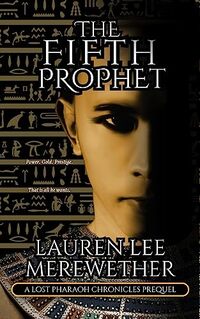 The Fifth Prophet: A Lost Pharaoh Chronicles Prequel (The Lost Pharaoh Chronicles Prequel Collection Book 4)
Genre: Thriller, Suspense, Historical Fiction, Literary Fiction, Teen & Young Adult
The Fifth Prophet: A Lost Pharaoh Chronicles Prequel (The Lost Pharaoh Chronicles Prequel Collection Book 4)
Genre: Thriller, Suspense, Historical Fiction, Literary Fiction, Teen & Young Adult
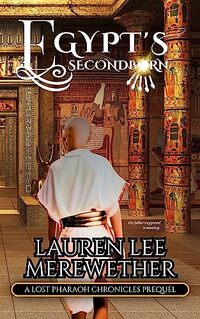 Egypt's Second Born: A Lost Pharaoh Chronicles Prequel (The Lost Pharaoh Chronicles Prequel Collection Book 5)
Genre: Historical Fiction, Literary Fiction, Teen & Young Adult
Egypt's Second Born: A Lost Pharaoh Chronicles Prequel (The Lost Pharaoh Chronicles Prequel Collection Book 5)
Genre: Historical Fiction, Literary Fiction, Teen & Young Adult
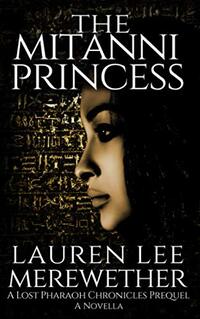 The Mitanni Princess: A Lost Pharaoh Chronicles Prequel Novella (The Lost Pharaoh Chronicles Prequel Collection)
Genre: Historical Fiction, Women's Fiction, Literary Fiction, Teen & Young Adult
The Mitanni Princess: A Lost Pharaoh Chronicles Prequel Novella (The Lost Pharaoh Chronicles Prequel Collection)
Genre: Historical Fiction, Women's Fiction, Literary Fiction, Teen & Young Adult
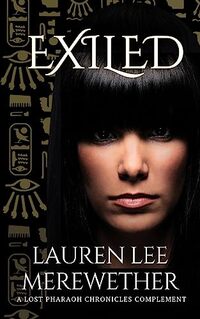 Exiled: A Lost Pharaoh Chronicles Complement (The Lost Pharaoh Chronicles Complement Collection)
Genre: Thriller, Suspense, Historical Fiction, Literary Fiction, Teen & Young Adult
Exiled: A Lost Pharaoh Chronicles Complement (The Lost Pharaoh Chronicles Complement Collection)
Genre: Thriller, Suspense, Historical Fiction, Literary Fiction, Teen & Young Adult
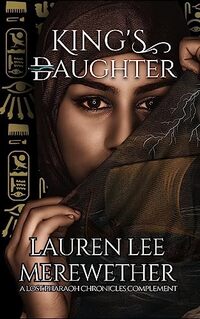 King's Daughter: A Lost Pharaoh Chronicles Complement (The Lost Pharaoh Chronicles Complement Collection)
Genre: Historical Romance, Historical Fiction, Women's Fiction, Literary Fiction, Teen & Young Adult
King's Daughter: A Lost Pharaoh Chronicles Complement (The Lost Pharaoh Chronicles Complement Collection)
Genre: Historical Romance, Historical Fiction, Women's Fiction, Literary Fiction, Teen & Young Adult
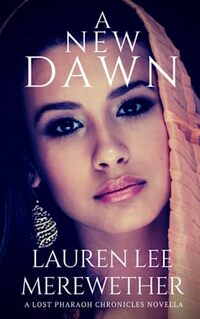 A New Dawn: A Lost Pharaoh Chronicles Complement Novella (The Lost Pharaoh Chronicles Complement Collection)
Genre: Historical Romance, Historical Fiction, Women's Fiction, Teen & Young Adult
A New Dawn: A Lost Pharaoh Chronicles Complement Novella (The Lost Pharaoh Chronicles Complement Collection)
Genre: Historical Romance, Historical Fiction, Women's Fiction, Teen & Young Adult
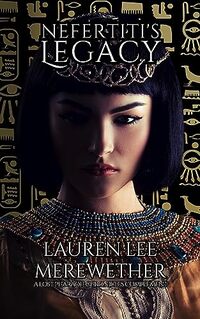 Nefertiti's Legacy: A Lost Pharaoh Chronicles Complement (The Lost Pharaoh Chronicles Complement Collection)
Genre: Historical Romance, Historical Fiction, Women's Fiction, Literary Fiction, Teen & Young Adult
Nefertiti's Legacy: A Lost Pharaoh Chronicles Complement (The Lost Pharaoh Chronicles Complement Collection)
Genre: Historical Romance, Historical Fiction, Women's Fiction, Literary Fiction, Teen & Young Adult
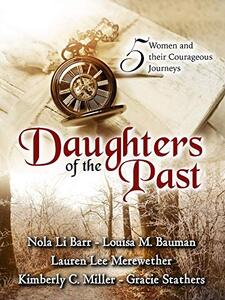 Daughters of the Past: A Historical Fiction Anthology
Genre: Historical Romance, Historical Fiction, Women's Fiction, Literary Fiction, Teen & Young Adult
Daughters of the Past: A Historical Fiction Anthology
Genre: Historical Romance, Historical Fiction, Women's Fiction, Literary Fiction, Teen & Young Adult
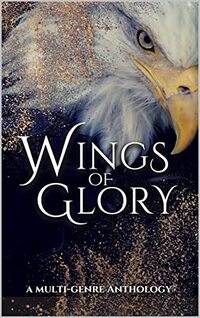 Wings of Glory: A Multi-Genre Anthology
Genre: Historical Fiction, Women's Fiction, Fantasy, Teen & Young Adult, Biographies & Memoirs
Wings of Glory: A Multi-Genre Anthology
Genre: Historical Fiction, Women's Fiction, Fantasy, Teen & Young Adult, Biographies & Memoirs
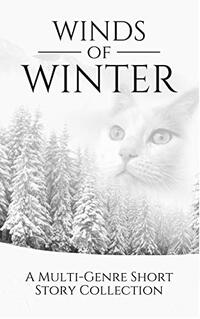 Winds of Winter: A Young Adult Multi-Genre Short Story Collection
Genre: Crime Fiction, Historical Mystery, Thriller, Suspense, Mystery, Supernatural Suspense, Action & Adventure, Contemporary Romance, Historical Romance, Romantic Suspense, New Adult Romance, Historical Fiction, Women's Fiction, Literary Fiction, Fantasy
Winds of Winter: A Young Adult Multi-Genre Short Story Collection
Genre: Crime Fiction, Historical Mystery, Thriller, Suspense, Mystery, Supernatural Suspense, Action & Adventure, Contemporary Romance, Historical Romance, Romantic Suspense, New Adult Romance, Historical Fiction, Women's Fiction, Literary Fiction, Fantasy

